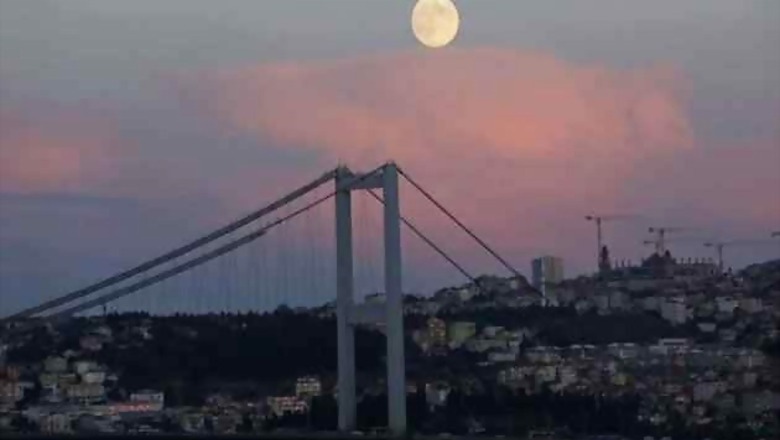
views
Beijing: China will launch its second orbiting space laboratory in two years' time, a top official said on Wednesday, the latest step in an ambitious space programme Beijing says will one day land a Chinese man on the moon.
Astronaut Yang Liwei, who in 2003 became China's first man in space and is now deputy director of the country's manned space programme, made the announcement at the Association of Space Explorers (ASE) congress in Beijing.
"We are going to launch the spacelab Tiangong-2 in 2016, and then we will launch Shenzhou-11 and then Tianzhou-1 cargo spaceship to dock on the spacelab," he said.
It is the first time China has hosted the annual meeting, which has drawn nearly 100 astronauts from 18 countries to Beijing, in a marker of the country's scientific progress.
Beijing sees its multi-billion-dollar space programme as a symbol of its rise and the Communist Party's success in turning around the fortunes of the once poverty-stricken nation.
Yang added that Beijing plans to launch an experimental core space station module in 2018 and finish construction of a Chinese space station around 2022.
Around the same time the rival International Space Station, operated by the US, Russia, Japan, Canada and Europe, is due to be retired.
"We believe humans will continue carrying out further space and moon exploration activities," Yang said.
"Research and technology development on this area will continue much further down the track."
'Common hope'
China has sent a total of 10 astronauts -- eight men and two women -- into space on five separate missions, and has launched an orbiting space module, Tiangong-1. It also launched the Chang'e-3 lunar mission, which included the Jade Rabbit lunar rover, late last year.
More women may be among the ranks of future Chinese astronauts, Yang said Wednesday.
Yang's schedule may represent a slight delay -- the official news agency Xinhua last year quoted a senior official saying the Tiangong-2 would be launched around 2015.
But the rapid and purposeful development of China's manned programme is in contrast with that of the US space agency NASA. It launched its final space shuttle flight in 2011 and its next step remains uncertain amid waning domestic support.
Several countries have already reportedly been in contact with Beijing about the possibility of collaborating in space.
Yang said China views such international cooperation as "of great significance".
"We'd like to actively carry out international exchange and cooperation with other countries... we will take a more open attitude for that," he said, without giving details.
China's space programme is military-run and highly secretive.
Several of the international speakers at the event emphasised that while the space race grew out of the Cold War, international cooperation had now become essential.
"'On the first day in space, we all pointed to our countries'," ASE executive director Andy Turnage quoted a 1985 statement by a Saudi Arabian astronaut as saying.
"'On the third day in space, we all pointed to our continents. On the fifth day in space, we were aware of only one earth.'"
"We might not share a common language, but we share a common humanity," Turnage added. "And we share a common hope for future generations."













Comments
0 comment